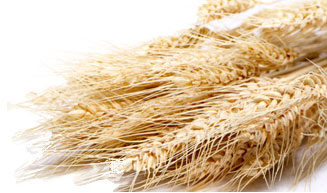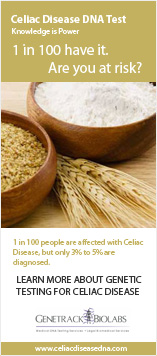How Does the Test Work?

Find out if you are at risk - get tested
| TEST | TESTING TIME | PRICE |
|---|---|---|
| DNA Celiac Disease Test | 4 to 6 weeks | $249 USD |
Identifying Mutations Associated with Celiac Disease
Almost all individuals with celiac disease have detectable genetic variants in their HLA-DQ genes. The HLA-DQ protein consists of two subunits, an alpha chain encoded by the HLA-DQA1 gene and a beta chain encoded by the HLA-DQB1 gene. HLA-DQ has an important function in the immune system.
Celiac disease is strongly associated with two inherited variants of the HLA-DQ protein: DQ2 and DQ8, which are thought to increase the risk of celiac disease by causing receptors in the immune system to preferentially bind to gliadin (a component of gluten) and initiating an autoimmune response.
HLA-DQ2
- Found in more than 90% of individuals with celiac disease and in 20% to 30% of the general population.
- Confirmed by positive genetic test results for the following gene variants: HLA-DQA1*05 and HLA-DQB1*02
HLA-DQ2
- Found in 5% to 10% of individuals with celiac disease and 10% of the general population.
- Confirmed by positive genetic test results for the following gene variant: HLA-DQB1*0302 (HLA-DQB1*0302 is always inherited together with HLA-DQA1*03)
The celiac disease DNA test determines the presence or absence of HLA gene variants which are known to be associated with celiac disease susceptibility, including the DQ2 alleles (HLA-DQA1*05, HLA-DQB1*02) and the DQ8 allele (HLA-DQB1*0302).
The presence of celiac disease-associated HLA alleles implies an increased risk for celiac disease, but is not diagnostic of celiac disease as only a subset of individuals with these alleles will develop celiac disease. However, individuals who test negative for the celiac disease-associated alleles HLA-DQA1*05, HLA-DQB1*02 and HLA-DQB1*0302 can essentially exclude a diagnosis of celiac disease and have almost no lifetime risk of developing celiac disease (less than 0.04% chance), regardless of whether or not they ingest gluten.

